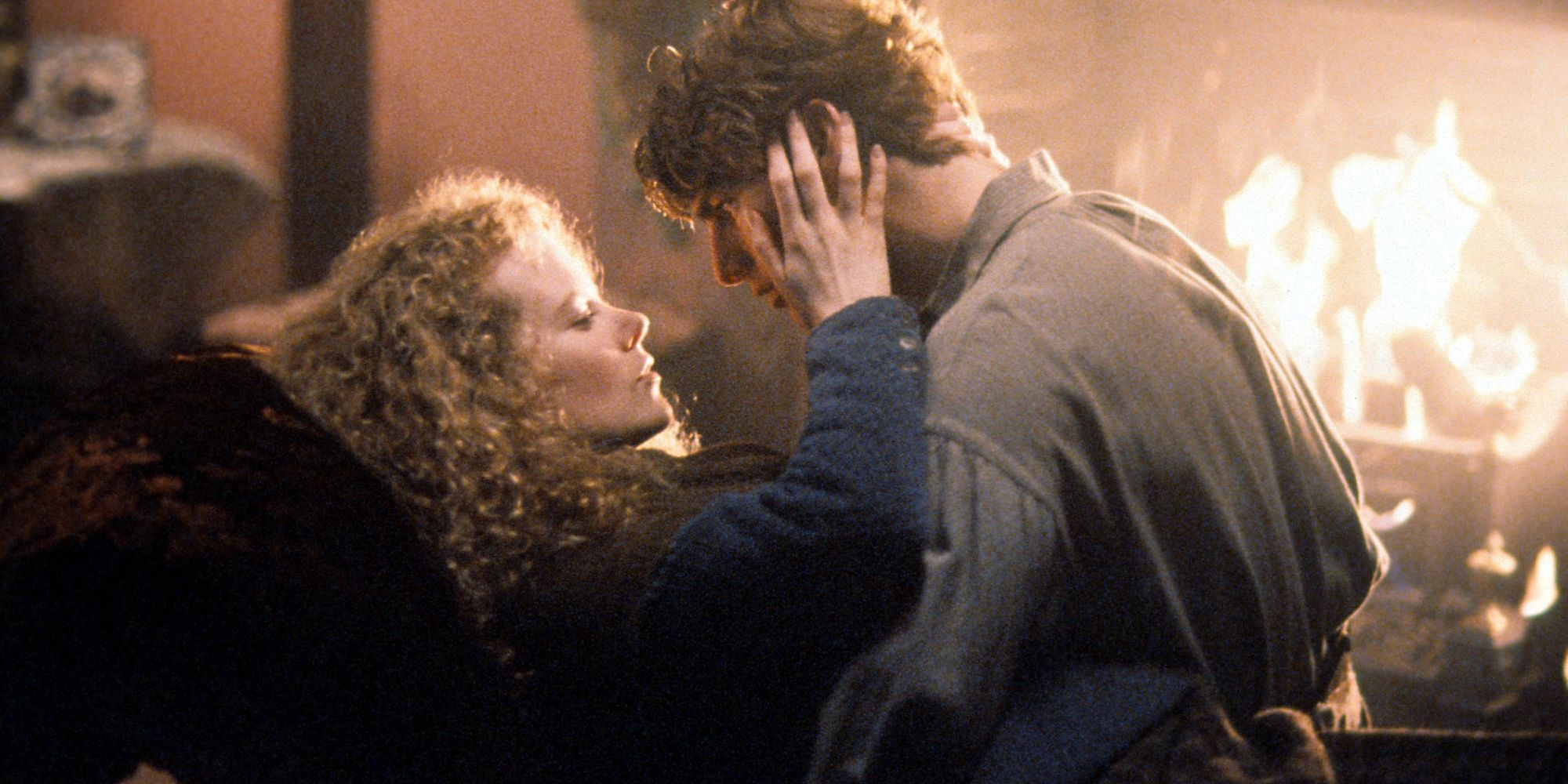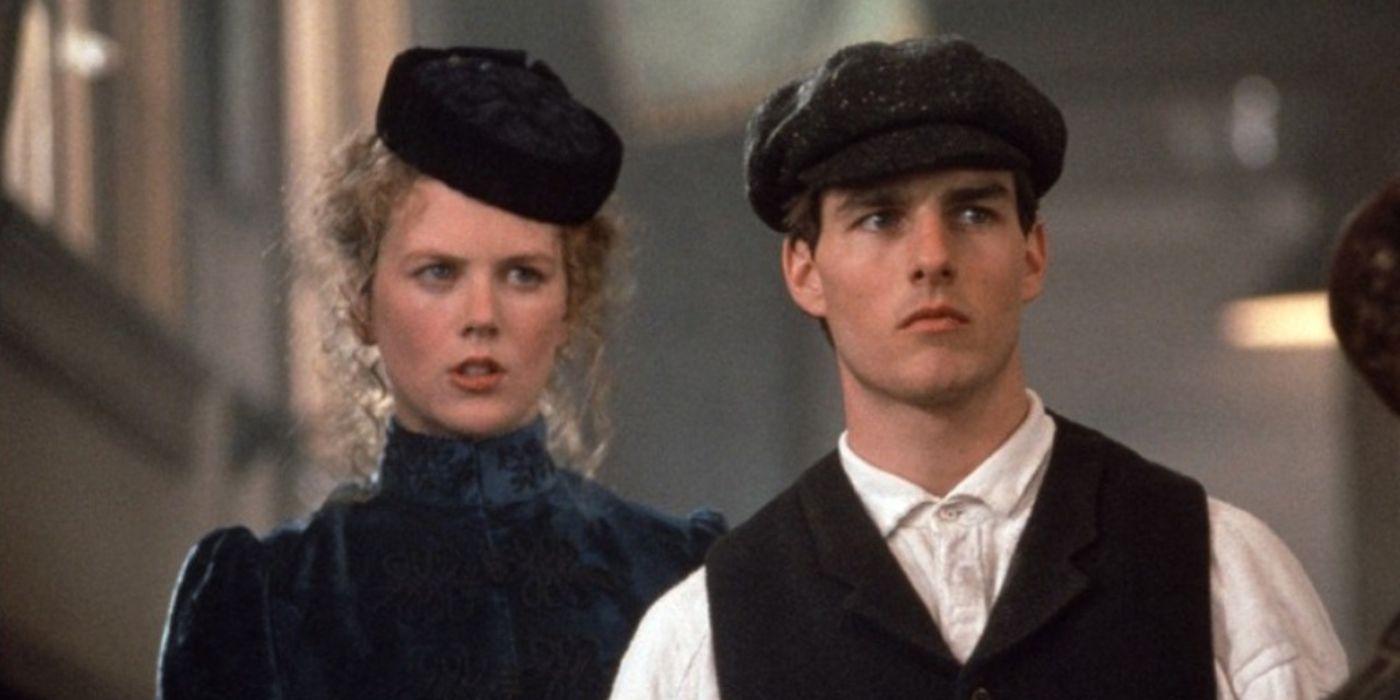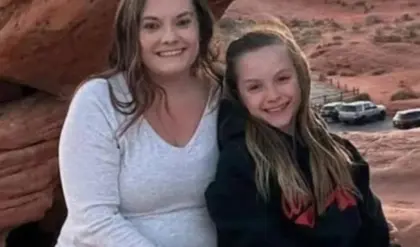Tom Cruise’s Only Western Is Old Fashioned Romance at Its Best© Provided by Collider
Far and Away, starring Tom Cruise and Nicole Kidman, is a historical drama set during the turn of the century and explores the experiences of immigrants in America.
The film’s finale, which depicts the Cherokee Outlet Land Rush of 1893, is a grand and thrilling sequence that showcases director Ron Howard’s filmmaking prowess.
Despite its narrative and tonal shortcomings, Far and Away displays undeniable chemistry between Cruise and Kidman, and offers occasional resonant insights into societal hierarchies.
Throughout their relationship and marriage of more than 10 years, Tom Cruise and Nicole Kidman famously co-starred in three films. Having met and first worked together on Tony Scott‘s Days of Thunder, the Hollywood power couple would conclude their professional partnership nine years later with Stanley Kubrick‘s Eyes Wide Shut, a film that some speculate may have even played a part in the dissolution of their marriage. Between making those very divergent films, however, the co-stars-turned-spouses embarked on a different kind of venture with 1992’s Far and Away.
Once described by director Ron Howard as Cruise and Kidman’s “honeymoon project,” the epic Western romance transports audiences back to the turn of the century as immigrants from around the world traveled to America in search of opportunity. Classical and old-fashioned in its sensibilities, it also remains Cruise’s sole venture into the Western genre. Although Far and Away doesn’t truly delve into Western territory until its final act, it delivers one of the most grand and thrilling finales in its director and stars’ respective bodies of work. Weaving his characters through a historical tapestry of adventure and romance, Howard caps the film off with a bang and offers a glimpse into a formative era of collective aspiration and individual ambition.
What Is ‘Far and Away’ About?
Far and Away tells a tale of Irish lovers from widely divergent social backgrounds. A farmhand seeking to avenge his father and the destruction of his home, Joseph Donnelly (Tom Cruise) embarks on a mission to kill Daniel Christie (Robert Prosky), a greedy landowner enriching himself through unjustly high rents on tenants. When his pursuit of Christie backfires (literally), Joseph crosses paths with the landowner’s daughter, Shannon (Nicole Kidman), an impetuous and stubborn young woman looking to dissociate from her privileged environment. Enticed by one another and the prospect of securing land in the Oklahoma Territory, they set sail across the Atlantic and settle in Boston.
This run of films is well worth a “YEE-HAW”!
Fresh off the boat in America, Joseph and Shannon pass themselves off as brother and sister, with the former finding local celebrity as an amateur bare-knuckle boxer and the latter relegated to factory labor and burlesque. In the meantime, Shannon’s wealthy parents are driven from their ivory tower by angry tenants, ultimately fleeing Ireland for America in search of their daughter. After a series of misfortunes, Joseph and Shannon are torn apart and head West with hopes of securing land. Reunited by mere chance in Oklahoma, they participate in the historic Cherokee Outlet Land Run of 1893 and ultimately claim their place in a new world.
Is ‘Far and Away’ Based On a True Story?
Historically based but fictional in nature, Ron Howard’s film stemmed from an original story he conceived along with writer/producer Bob Dolman. As one of his only writing credits within a prolific career, Howard took inspiration from exploring his own heritage to dramatize the multifaceted experience of immigration to America at the turn of the century. In a retrospective discussion for the film’s 30th anniversary, he revealed to Yahoo! Entertainment that “Far and Away really began probably when I was 6 years old, maybe 7, and I visited my great-grandmother in Kansas. And she pulled out of her drawer this newspaper and it was from the 1890s, and it was a photo for the Oklahoma land rush starting line. And she thought that her future husband was in the lead on a horse.”

In drawing from a sweeping bit of American history, Howard and co-writer Dolman offer viewers a glimpse into a raucous time period in which cultures clashed like oil and water, with immigrants from all walks of life clamoring to keep themselves afloat amid a rapidly transforming and growing society. Regarding Far and Away’s romance, which derives from largely one-dimensional lead characters and often verges on something out of a teenage love story, Cruise and Kidman nonetheless display undeniable chemistry that transcends the film’s narrative and tonal shortcomings. Spending much of their time squabbling over petty grievances, exchanging digs and jabs like two kids refusing to acknowledge they’re crushing on each other, Joseph and Shannon’s relationship harkens back to the screwball Hollywood romances of old. And while Howard and Dolman’s screenplay doesn’t shy away from superficial stereotypes, its occasional observations on societal hierarchies land with resonance. But for all of its historicity on a tangential level, it’s the film’s finale that drops audiences smack dab in the middle of a lesser-known corner of American history.
‘Far and Away’s Western-Based Final Act Is Its Best
At midday on September 16, 1893, roughly 100,000 eagerly awaited their chance to claim land in present-day northwestern Oklahoma. Dubbed the Cherokee Outlet, the area comprised roughly 40,000 parcels and was yet another chunk of territory being carved up by the U.S. government after generations of inhabitancy by Native Americans. It would be the fourth and largest of five land rushes in the area over several years. After a starting gun sounded at noon, people on horseback, in wagons, and on foot stormed the frontier hoping to score a piece of the limited real estate. In Far and Away’s final half-hour, Joseph and Shannon find themselves front and center at the starting line of the Cherokee Outlet Land Rush, and it’s in this ambitious recreation of American history that Ron Howard’s film truly soars with spectacle, excitement, and a good old-fashioned sense of adventure.

Years before CGI became the norm for staging such sequences, evermore incentivizing filmmakers to rely on increasingly stale technology to populate their epic frames, Howard had no choice but to employ hundreds of stunt performers, extras, animals, and period-authentic props to bring the event to the screen. Of shooting the sequence, Howard remembers, “We had 750 people and horses lined up. We had 13 cameras, two in the air, cameras dug in everywhere.” And several of those cameras were loaded with wide, high-resolution film, expanding on the scene’s large-scale sense of grandeur and scope. According to Variety, Far and Away was “notable as the first narrative, non-effects-oriented Hollywood feature in more than two decades to have been shot on 65mm stock (with Panavision’s new Super 70 equipment) and released in 70 mm.”
As the film’s main characters finally converge at this historic moment, Far and Away earns its spurs as an exercise in Western filmmaking, with a game Cruise and Kidman deftly weaving through Howard’s frame on horseback as the filmmaker’s cameras sweep above and through the action. An Oklahoma native, Howard orchestrates one of the most logistically complex and thrilling sequences of his decades-long career behind the camera, and though Far and Away would come and go with a lukewarm reception from audiences and critics in 1992, it nevertheless remains an enduring and underrated effort on the part of its director and lead performers.



